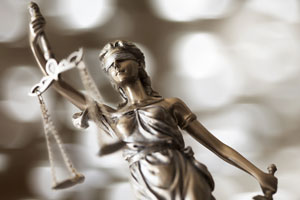The former Alabama House Speaker who was convicted of corruption charges in June has appealed his case by citing improper expert testimony. According to the appeal, the trial court erred by allowing a state ethics expert witness to take the stand, and further erred by allowing him to provide an inaccurate picture of Alabama ethics rules.
Expert Testimony Aids in Alabama Speaker’s Conviction
Earlier this year, the former Alabama House Speaker Mike Hubbard (R) was convicted of 12 ethics violations for using his political position to secure favorable contracts for companies he owned. Prosecutors demonstrated that Hubbard’s companies had been awarded up to $2.3 million in government contracts in violation of the state’s ethics law. The state bolstered its case with testimony from the former director of the Alabama Ethics Commission Jim Sumner, who took the stand as an ethics expert witness.
Sumner explained Alabama ethics law, which prohibits state government officials from using political office to benefit themselves or a business in which they hold interest. Sumner also testified that Hubbard was well aware of the relevant ethics laws, but the former Speaker did not make an effort to consult the ethics board when engaging in questionable behavior. With the aid of Sumner’s expert testimony, Hubbard was convicted and sentenced to serve four years in prison, eight years probation, and pay a fine of $210,000.
This week, Hubbard file a motion to the court appealing his conviction by arguing Sumner’s testimony should have been disallowed as an impermissible, and incorrect, opinion of Alabama ethic’s law.
Mike Hubbard Cites Error in Expert Testimony in New Trial Motion
In a 39-page motion detailing the problems with the prosecution’s interpretation of Alabama ethics law and requesting either a dismissal of all charges or a new trial, Hubbard provided an in depth argument against Sumner’s expert testimony. According to Hubbard, Sumner’s testimony was faulty for two reasons: 1) he offered opinion testimony, which is impermissible; and 2) he was wrong in his opinion of Alabama ethics law. Alabama’s laws of evidence allow expert witnesses to explain facts or laws in a way that jurors are able to understand, but does not allow experts to provide their opinion on how facts or laws should be interpreted. According to Hubbard’s appeal, Sumner’s ethics expert analysis violated this rule because he told jurors what the language of Alabama ethics law meant. Hubbard claims that Sumner provided his own interpretation of Alabama ethics law, which should have been disallowed by the trial court.
Hubbard also argued that the problem with allowing Sumner to provide his opinion of Alabama’s ethics law was compounded because the expert was incorrect in his interpretation. Hubbard’s motion for a new trial alleges that Sumner’s expert testimony encouraged an overly broad interpretation of the state’s ethics code which encouraged criminalization of behavior which was not intended when the rules were passed. Sumner allegedly misinterpreted Hubbard’s contracts with the state of Alabama as illegal activity, and failed to properly explain certain exceptions to the ethics code which Hubbard claims applied to his case.
Hubbard’s motion for a new trial concludes by arguing that prosecutors improperly called an ethics expert witness whose opinion of the relevant law aligned closely with their own, and the trial court erred by allowing the jury to consider Sumner’s testimony.
Alabama Criminal Court to Consider Hubbard’s Motion for a New Trial
Prosecutors have yet to respond to Hubbard’s motion for a new trial, but have asked the Court to reconsider the defendant’s sentence. According to prosecutors, Hubbard should also have been ordered to pay $1.1 million in restitution for his corruption conduct based on previous sentences for similar actions by officials. Prosecutors requested the additional restitution during sentencing, but were unable to provide legal precedent until a post-conviction motion. Given Hubbard’s recent appeal, the state’s attorneys will be forced to shift focus to a motion defending their use of an expert.
Hubbard remains out of jail on bond while the Judge considers post-conviction appeals and motions, and with the importance of the upcoming ruling on his motion to dismiss charges and overturn the conviction, the case will likely take several more weeks or months to resolve. Should Hubbard be granted a new trial, prosecutors will need to reassess how they use their ethics expert witness to avoid overstepping the boundaries placed on expert testimony.





